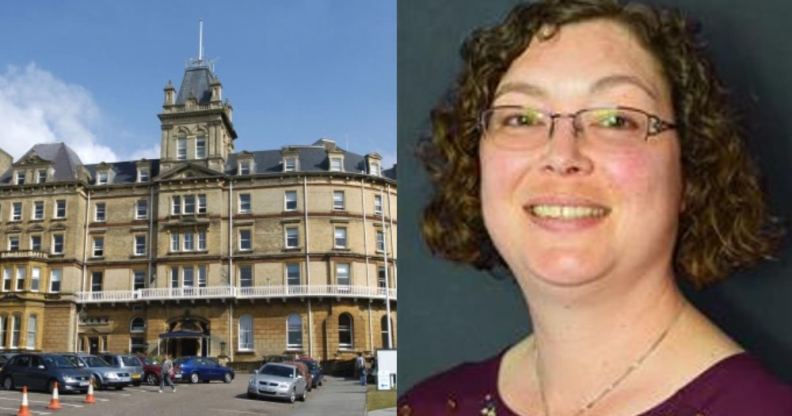Council considers ditching ‘outdated’ gendered terms and snowflakes are – predictably – fuming

Bournemouth, Christchurch and Poole councillor LJ Evans (pictured) is mounting a move to chuck gendered language from official reports and correspondence. (BCPC)
A local council in England is facing off against Piers Morgan-grade snowflakes ahead of a vote to move away from gendered terms in meetings and to make official correspondence more inclusive.
Officials at Bournemouth, Christchurch and Poole Council are vote on a motion to meet next Tuesday (23 March) to remove “male universal” terms such as “chairman” and to use gender-neutral language where a person’s gender is “not relevant or not known”.
However, the council would “continue to use pronouns when the sex of an individual is known, or when an expressed request has been made from an individual to be referred to by a specific gender”.
According to an agenda front sheet, the motion proposes three main changes that would tweak both the language used in council meetings and within official correspondences with the public, such as letters.
“Remove male universals, such as ‘chairman’, from the constitution, policies and all written and verbal communications and to replace them with gender-neutral terms, such as ‘chair’,” the motion states.
“Use gender-neutral language where an individual’s sex or social gender are not relevant or not known.
“Respect an individual’s right to be addressed as they wish, and identify this where appropriate.”
A council spokesperson told PinkNews: “The motion proposed to use gender-neutral language across the council’s reports and formal communications has been brought forward by an elected member and will be discussed at council on Tuesday (23 March).
“At this stage, the motion has not been approved.”
In totally surprising plot twist, plans to scrap gendered terms annoy snowflakes
The move is being mounted by independent councillor LJ Evans, who says that using terms such as chairman “reinforces gender stereotypes”, the Bournemouth Echo reported.
“The use of masculine and feminine words to cover people, regardless of gender or sex, is unnecessary, inaccurate and tends to reinforce historic gender stereotypes,” Evans explained.
“Gender-neutral writing is about clarity, inclusion, equality and would help to prevent unconscious bias.”
“Society has changed over time and gender equality has made judge leaps forwards.”
Evans first put forward the motion to the council in January. It was scrutinised by the council’s audit and governance committee last week.
She sought to shore up support for her proposal by noting that most basic correspondence with citizens already doesn’t use gendered language, with “Dear resident” already being common.
“If somebody writes to us using a specified pronoun of course we will use that,” she added.
“But some names are ambiguous. For example, our council leader is a man called Drew and I think of Drew Barrymore.”
Labour councillor Lisa Lewis, who has seconded the motion, said: “We just feel that we want the council to get up to date. The Civil Service has used gender-neutral language since 2007.
“We want to make everybody feel that they are included.”
It’s a small and simple adjustment. But of course, it’s provoked fury.
One local resident who spoke to the Daily Mail fumed that the “the tyranny of the woke group strikes again”.
Another local raged: “Is this what I pay my council tax for, so councillors can sit around talking about this?”
Evans added: “Being woke isn’t necessarily a bad thing.”

